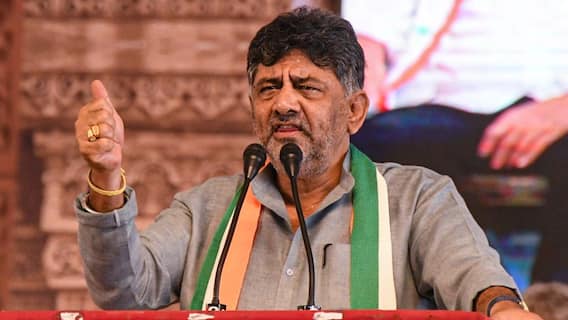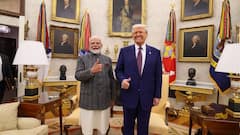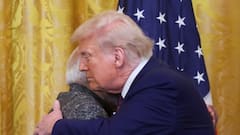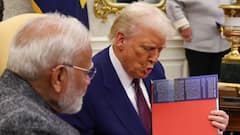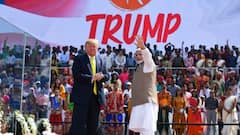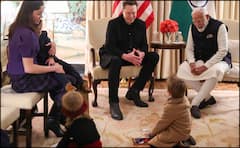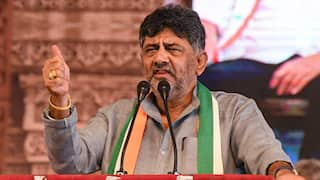Middle East Conflict: After Iran's Warning, More Israeli Strikes Pound Lebanese Neighborhoods-- Top Points
Israel has been weighing options in its response to Iran's ballistic missile attack on Tuesday, which Iran had carried out in response to Israel's military action in Lebanon

Middle East Conflict: The main border crossing between Lebanon and Syria was cut off after Israel carried out another series of airstrikes Friday, hitting Hezbollah's hideouts in suburban Beirut. Israel said it had targeted the intelligence headquarters of the Iran-backed militant in Beirut and was assessing the damage. This comes after a series of attacks on senior figures in Hezbollah that Iran's Supreme Leader dismissed as counterproductive.
The visuals from the ground showed that overnight blasts in Beirut’s southern suburbs had sent huge plumes of smoke and flames into the night sky and shook buildings kilometres (miles) away in the Lebanese capital.
Meanwhile, Israel has been weighing options in its response to Iran's ballistic missile attack on Tuesday, which Iran had carried out in response to Israel's military action in Lebanon, according to a report by Reuters. Israel was reportedly planning to attack Iran's oil facilities as it pursued its goals of pushing back Hezbollah militants in Lebanon and eliminating their Hamas allies in Gaza. This led to a rise in oil prices.
On Friday, however, US President Joe Biden said he would think about alternatives to striking Iranian oil fields if he were in Israel's shoes, adding that he thinks Israel has not yet concluded how to respond to Iran.
As per the report, an air attack on Beirut, part of a wider assault that has driven more than 1.2 million Lebanese from their homes, was reported to have targeted the potential successor to the leader of Iran-backed Hezbollah, Sayyed Hassan Nasrallah, killed by Israel a week ago. Hashem Safieddine's fate was unclear and neither Israel nor Hezbollah have offered any comment.
A blast was reportedly heard and smoke was seen over Beirut’s southern suburbs early on Saturday, as the Israeli military issued three alerts for residents of the area to immediately evacuate. The first alert reportedly warned residents in a building in the Burj al-Barajneh neighbourhood and the second in a building in the Choueifat district. The third alert mentioned buildings in Haret Hreik as well as Burj al-Barajneh.
The Israeli military said some 70 projectiles were launched from Lebanon into Israeli territory on Friday evening and were either intercepted or fell into open land.
'IDF Trying To Infiltrate Lebanon'
In a statement early on Saturday, Hezbollah also said the Israeli army was trying to infiltrate the Lebanese southern town of Odaisseh and that clashes there were ongoing. Israel sent ground forces into Lebanon this week after the Iranian missile attacks. It has said its ground operations are "localized" in villages near the border, but has not specified how far into Lebanon they would advance or how long they would last. Israel says the operations aim to allow tens of thousands of its citizens to return home after Hezbollah bombardments that forced them to evacuate from its north.
The Lebanese government has also accused Israel of targeting civilians, pointing to dozens of women and children killed. It has not broken down the overall figure between civilians and Hezbollah fighters. Israel says it targets military capabilities and takes steps to mitigate the risk of harm to civilians. It accuses Hezbollah and Hamas of hiding among civilians, which they deny.
Iran Vows Retaliation
Iran's missile salvo was partly in retaliation for Israel's killing of Hezbollah secretary-general Nasrallah, a dominant figure who had turned the group into a powerful armed and political force with reach across the Middle East. Iranian leader Ayatollah Ali Khamenei told a huge crowd in Tehran that Iran and its regional allies would not back down.
Israel's adversaries in the region should "double your efforts and capabilities... and resist the aggressive enemy," Khamenei said in a rare appearance leading Friday prayers, at which he mentioned Nasrallah and called Iran's attack on Israel legal and legitimate. He said Iran would not "procrastinate nor act hastily to carry out its duty" in confronting Israel.
The semi-official Iranian news agency SNN quoted Revolutionary Guards deputy commander Ali Fadavi as saying on Friday that if Israel attacked, Tehran would target Israeli energy and gas installations.
Trending News
Top Headlines











